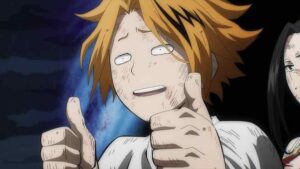 Nothing with a series as massive as Boku no Hero Academia happens in a vacuum. Especially a Jump series, and especially at the end. The events on screen are important. They’re the main reason we’re here, why I’m writing and you’re reading. They’re the climactic moment of 167 episodes of buildup. But they kind of are what they are. You’ll have views on them and so will I, and I’ll share mine. But the story of how all this is received is an important one, and it too demands a certain amount of exploration.
Nothing with a series as massive as Boku no Hero Academia happens in a vacuum. Especially a Jump series, and especially at the end. The events on screen are important. They’re the main reason we’re here, why I’m writing and you’re reading. They’re the climactic moment of 167 episodes of buildup. But they kind of are what they are. You’ll have views on them and so will I, and I’ll share mine. But the story of how all this is received is an important one, and it too demands a certain amount of exploration.
 Before I sat down to write this (well, I was already sitting down) I explored the fan response to this episode pretty extensively. And the picture is painted pretty clearly – anime viewers mostly loved it. TV ratings are through the roof (it beat One Piece last week), and the tone of commentary is overwhelmingly positive. Manga readers mostly hated it. The tone of their response when these chapters hit was overwhelmingly negative. That’s the essence of this, and the most interesting question to ponder. Why is that? Are anime audiences – this one at least – just that different from manga audiences? Or is there something else at play here?
Before I sat down to write this (well, I was already sitting down) I explored the fan response to this episode pretty extensively. And the picture is painted pretty clearly – anime viewers mostly loved it. TV ratings are through the roof (it beat One Piece last week), and the tone of commentary is overwhelmingly positive. Manga readers mostly hated it. The tone of their response when these chapters hit was overwhelmingly negative. That’s the essence of this, and the most interesting question to ponder. Why is that? Are anime audiences – this one at least – just that different from manga audiences? Or is there something else at play here?
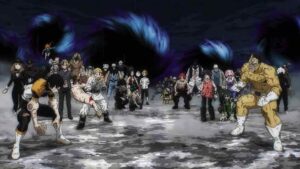 I guess my answer to that would be “yes, and probably but I’m not sure what”. Anime reach more people than manga do – and different people. Even here. I think it’s safe to say more people with no other connection to HeroAca watch the anime than read the manga. But for whatever reason, the BnHA manga readership seems to be one of the most relentlessly negative around, even in the context that WSJ kaijuu usually have overwhelmingly critical audiences that love to complain. A lot of times with Bleach and Naruto and the like that negativity manifested itself in criticizing “their” series’ rivals. With HeroAca, for reasons I don’t really understand, it seems to manifest in criticizing the series itself.
I guess my answer to that would be “yes, and probably but I’m not sure what”. Anime reach more people than manga do – and different people. Even here. I think it’s safe to say more people with no other connection to HeroAca watch the anime than read the manga. But for whatever reason, the BnHA manga readership seems to be one of the most relentlessly negative around, even in the context that WSJ kaijuu usually have overwhelmingly critical audiences that love to complain. A lot of times with Bleach and Naruto and the like that negativity manifested itself in criticizing “their” series’ rivals. With HeroAca, for reasons I don’t really understand, it seems to manifest in criticizing the series itself.
 Not that I would say Horikoshi is above criticism, mind you. Or this ending (what we’ve gotten and what’s still to come). Some of it I can’t get into yet for obvious reasons, but in terms of the fight itself, that I can comment on. I have to praise Horikoshi-sensei for allowing time for a coda, something all long action series should do but often don’t. After 400+ chapters it would have been a crime to effectively end on the battlefield, because what happens to all this people after the battles are over is crucial to the way we emotionally part with the series. That said, though, he certainly didn’t leave room for four episodes worth of coda – which begs the interesting question of just what Bones intends to do with all that time.
Not that I would say Horikoshi is above criticism, mind you. Or this ending (what we’ve gotten and what’s still to come). Some of it I can’t get into yet for obvious reasons, but in terms of the fight itself, that I can comment on. I have to praise Horikoshi-sensei for allowing time for a coda, something all long action series should do but often don’t. After 400+ chapters it would have been a crime to effectively end on the battlefield, because what happens to all this people after the battles are over is crucial to the way we emotionally part with the series. That said, though, he certainly didn’t leave room for four episodes worth of coda – which begs the interesting question of just what Bones intends to do with all that time.
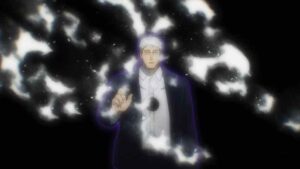 In the end it was All For One who was the last man standing after all. In his game of musical identities with Shigaraki it was AFO who slid his butt into the final chair. But his grasp of what was really happening was weak. He wasn’t alone in there, thanks to Deku’s last gasp strategy. And the removal of his brother – and most of his stated goals – from consideration seemed to leave All For One uncharacteristically untethered mentally. Izuku was in a terrible state, ever after his rewind. But thanks to Kurogiri – who in the end seemed to be acting on behalf of both his old and new friends – he didn’t have to face AFO alone. Not remotely.
In the end it was All For One who was the last man standing after all. In his game of musical identities with Shigaraki it was AFO who slid his butt into the final chair. But his grasp of what was really happening was weak. He wasn’t alone in there, thanks to Deku’s last gasp strategy. And the removal of his brother – and most of his stated goals – from consideration seemed to leave All For One uncharacteristically untethered mentally. Izuku was in a terrible state, ever after his rewind. But thanks to Kurogiri – who in the end seemed to be acting on behalf of both his old and new friends – he didn’t have to face AFO alone. Not remotely.
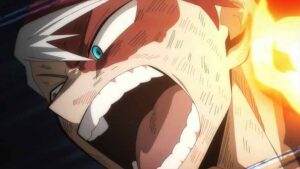 Some felt that having all of Deku’s old allies rally to his side was hokey. So be it – I feel like I get the point of it. The mechanics of how it happened made sense in the context of the plot. And as importantly, it made sense for Izuku himself. He is who he always was – a boy too nice for his own good, someone who relied on other people. All For One recongizes this in Midoriya – sees the way this “weakness” All Might never had could also be a strength. The kind of loyalty he inspires came about honestly, through his hard work and the nature of his character.
Some felt that having all of Deku’s old allies rally to his side was hokey. So be it – I feel like I get the point of it. The mechanics of how it happened made sense in the context of the plot. And as importantly, it made sense for Izuku himself. He is who he always was – a boy too nice for his own good, someone who relied on other people. All For One recongizes this in Midoriya – sees the way this “weakness” All Might never had could also be a strength. The kind of loyalty he inspires came about honestly, through his hard work and the nature of his character.
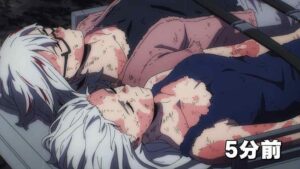 Equally, Izuku’s compassionate take on Shigaraki and All For One at the end is perfectly consistent with who he is and always was. It – especially with AFO – seems to really piss of a huge chunk of manga readers. I don’t quite get that to be honest. Did you expect Deku to change after 420 chapters? Or were you just not paying attention to who he was? He sees the humanity in his enemy, no matter the enemy. And in a way it was his ability to see both Shigaraki and All For One that way even when they didn’t themselves that allowed Deku to finally bring them down.
Equally, Izuku’s compassionate take on Shigaraki and All For One at the end is perfectly consistent with who he is and always was. It – especially with AFO – seems to really piss of a huge chunk of manga readers. I don’t quite get that to be honest. Did you expect Deku to change after 420 chapters? Or were you just not paying attention to who he was? He sees the humanity in his enemy, no matter the enemy. And in a way it was his ability to see both Shigaraki and All For One that way even when they didn’t themselves that allowed Deku to finally bring them down.
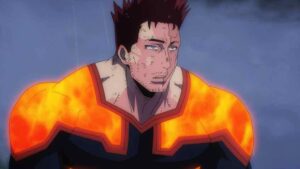 The matter of the cost of all this we’ll deal with next week and beyond. It’s no spoiler to say it will be substantial – Izuku suffered terribly and gave up a lot in order to land that final Deku Smash, and he certainly wasn’t the only one. There are still a lot of unanswered questions here, above and beyond the aftermath of the battle itself. But we can say with certainty that Deku isn’t the sort of guy who would have made any other choices – no matter what his stated goals and dreams from the beginning have been.
The matter of the cost of all this we’ll deal with next week and beyond. It’s no spoiler to say it will be substantial – Izuku suffered terribly and gave up a lot in order to land that final Deku Smash, and he certainly wasn’t the only one. There are still a lot of unanswered questions here, above and beyond the aftermath of the battle itself. But we can say with certainty that Deku isn’t the sort of guy who would have made any other choices – no matter what his stated goals and dreams from the beginning have been.



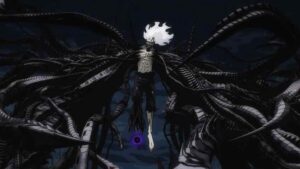
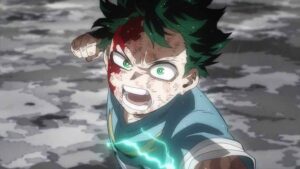
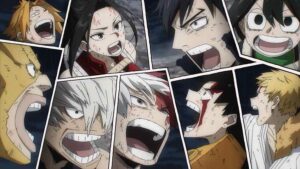
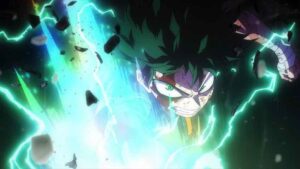
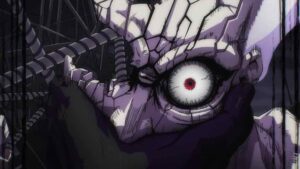
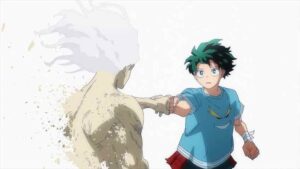
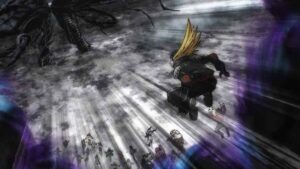
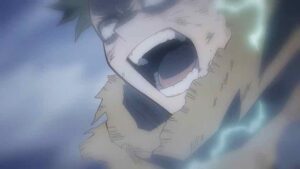
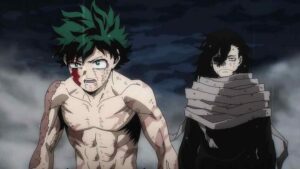
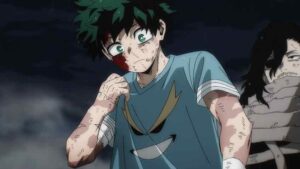
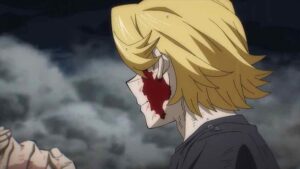
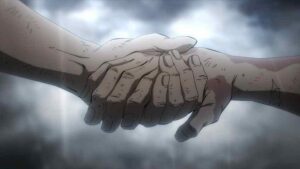
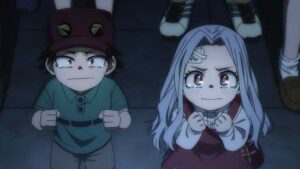
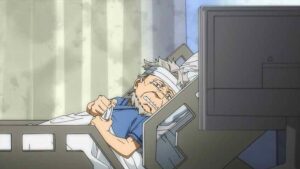
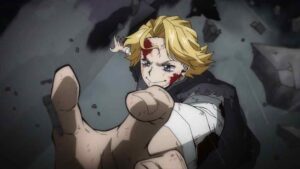
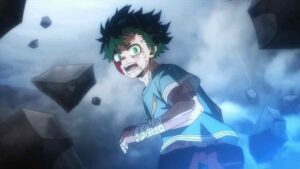
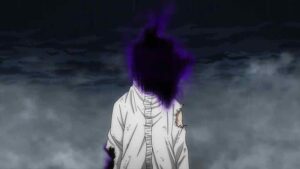
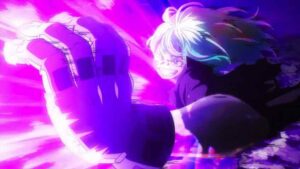
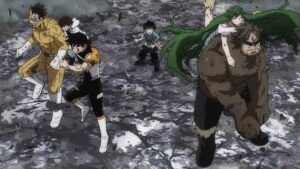
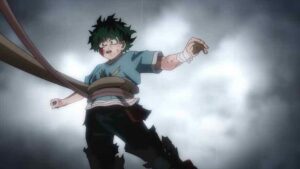

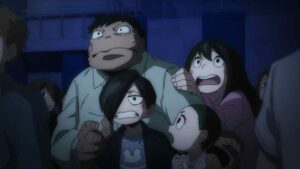
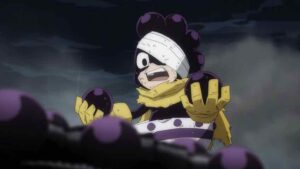
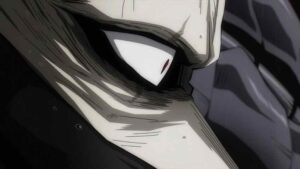
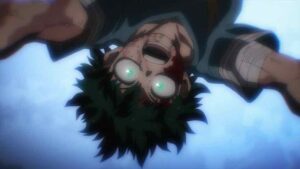
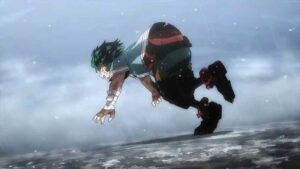

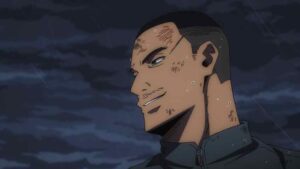


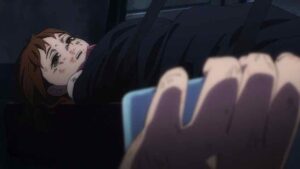

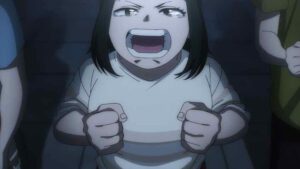
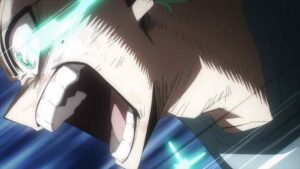
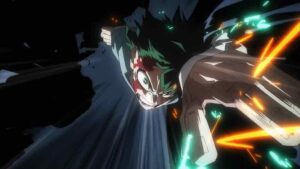
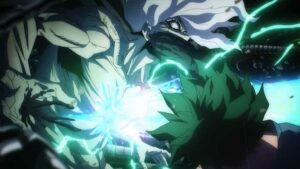
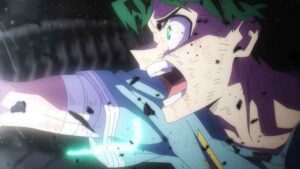
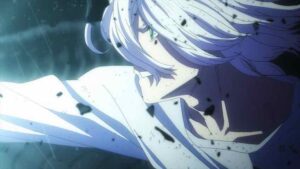
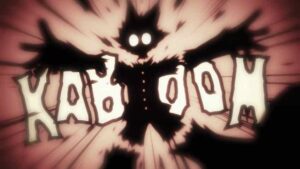
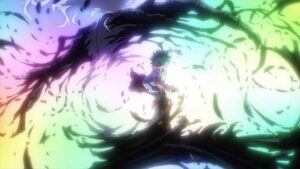
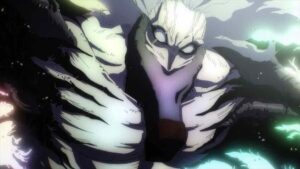
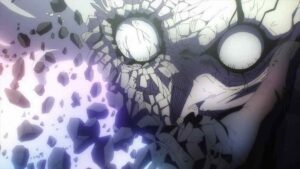
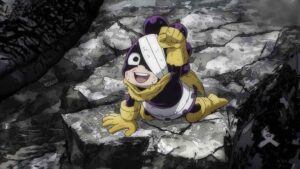
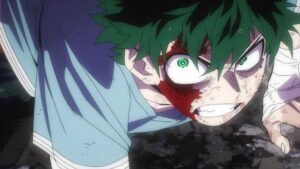
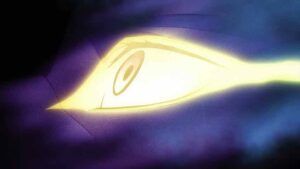
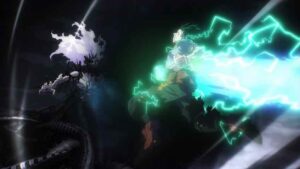
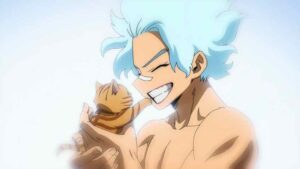
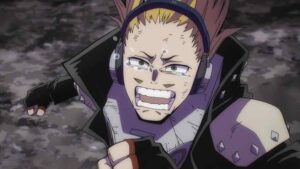
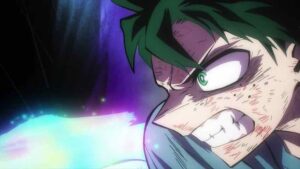
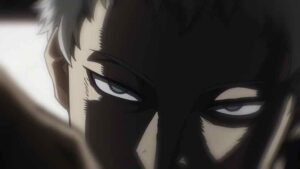
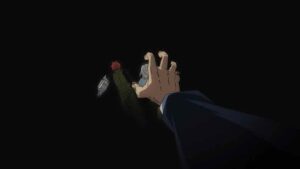
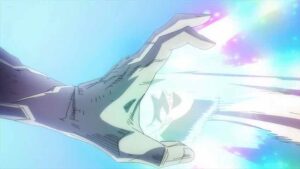
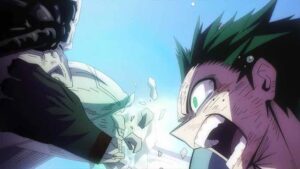
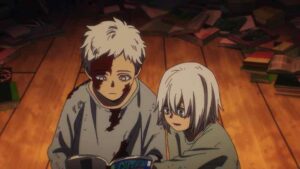
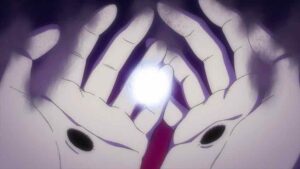
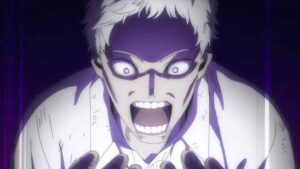
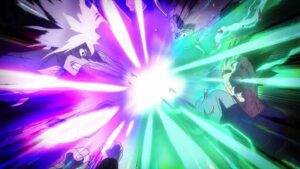
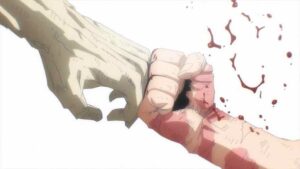

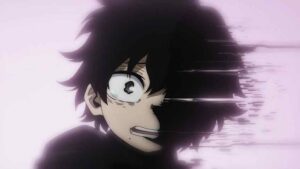
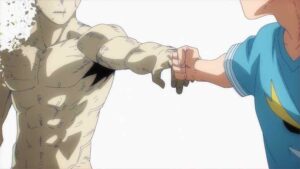
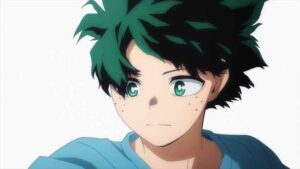
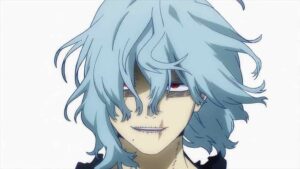
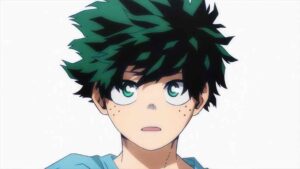
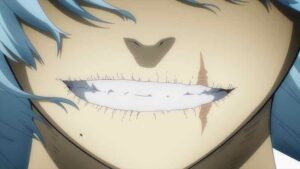
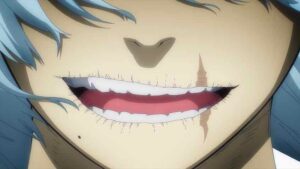
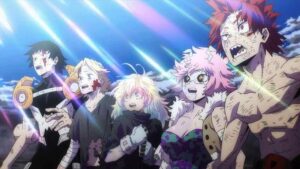
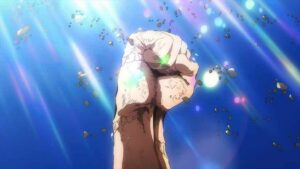



Henk
November 23, 2025 at 3:48 amAnime only here. All I can say is that all of this felt very in character for Deku to me. And I think the show sticked the landing quite well.
Collectr
November 23, 2025 at 5:18 amAs for the manga critics… there’s no accounting for taste. I’m no fan of shounen kaijuus, but this ending was bloody brilliant in both media. Midoriya won, for sure; but Horikoshi’s genius is showing that there’s a price to be paid, by everyone, not just the baddies. Maybe that’s why the anime has reserved four episodes for the epilogue, just as the manga used eight chapters: to show the consequences for the characters, and the meaning of that unvoiced final line of the climactic battle.
Guardian Enzo
November 23, 2025 at 9:28 amThree, as it turns out – we’re only getting 11 announced today. Still plenty.
The issue of consequence is something Hori shares with Togashi.
Nadavu
November 23, 2025 at 5:53 amFirst off, as an anime-only viewer, this was everything I wanted it to be: Epic, with every side character getting a tiny bit of screentime, and with a decisive victory. What are the manga-readers’ complaints, exactly? That Deku tells AFO that he’s a lonely person? Considering he punched him out of existence, I don’t exactly see it taking it too easy on him. If anything, it was the final put-down. Perhaps they’re upset that in his last moments AFO came to see himself as Deku saw him? That the Demon Lord died not a defiant villain but a sad and regretful old man? I can kinda understand that, but we got to see him die defiantly once already, by the hands of Bakugo. And it makes sense – that version died without losing Yoichi. In the end, it has been foreshadowed that AFO had feels and a deep hurt – how many times this season did they show his tears as he killed the 2nd (or 3rd? not exactly sure)?
Anyways. What I don’t understand is what happened with Kurogiri. It looks like he went to confront AFO, but then Bakugo took him out? Not at all sure what went down there.
Guardian Enzo
November 23, 2025 at 9:34 amOverall complaints are too numerous and tiresome to list here. But there was a lot of hate over Deku “reaching out” to all the baddies at the end, and giving them a chance to have a somewhat redemptive ending.
nickk
November 23, 2025 at 7:19 amI was looking forward to reading your thoughts on this and I am glad that you posted even though it must be late at night where you are!
I was a little in trepidation over having AFO take centerstage as the big bad once again, but in retrospect, how it got resolved holds true to the themes of this series – that Deku inspires others to act by not having the strength himself, and that being overly reliant on one person to save the day is partly what led to the collapse of Hero society in the first place.
The music (You Say Run!!) and voice acting really elevated this episode.
The epilogue should be rather interesting – I really like how BnHA has those quiet moments of reflection after major events… in fact that is why I loved episode 12 of the 3rd season, maybe even a little more than the top-rated episode 11 that preceded it.
Guardian Enzo
November 23, 2025 at 9:30 am1 AM! Had a busy night recording future podcast episodes.
Sonicsenryaku
November 23, 2025 at 8:04 amI think the difference in reception can also be simply chocked down to the strengths putting still pages into animation can have. Sometimes, voice acting + directorial vision+animation can make you better understand the core vision the source material was aiming to achieve, resulting in a different emotional resonance than when reading it in the manga.
I also think heightened expectations at the tail end of a series radicalizes fans, distorting their perceptions of what is given to them by the story since the end product tends to contrast with the unrealistically lofty mental fan fiction of an ending they initial envisioned in what can perhaps be described as their hyper-stimulated, anticipatory state We’re all susceptible to this when we’re really invested in a story by the way, and the cure is usually some time away from the work and then coming back to it when your mind is less volatile for a more clearer analysis (or experiencing the work through a different medium)
Guardian Enzo
November 23, 2025 at 9:32 amThat’s a valid point, especially when Bones is doing an adaptation.
As to your second paragraph sure, but it always seems more petulant and poisonous with BnHA than almost any other fanbase. Something in the series itself seems to engender it.
Toni
November 23, 2025 at 8:07 pmAre we really sure manga readers hated the end? Enzo, you live in Japan: did people in the street (or at work) talk about how they hated it? Or is it just the minuscule buble of people posting their opinions on the net?
How many negative opinions have we seen? Dozens? A hundredth? The manga sells millions …
This happend with Attack on Titan, where the netizens were expecting EVERYBODY to hate the end, and then mostly everyone (excepting you, Enzo, maybe) was OK with it. It will happen againg when Jujutsu Kaisen ends: ‘everybody’ is saying that this 3rd season is when ‘it starts to suck’, but I bet you it will be a big success.
Bitter thirty year old Naruto fans posting in forums or twitter are hardly representative of the majority, now that anime has really gone mainstream (you’ve seen the box office in America and elsewhere)
Off topic: did you watch the Haikyuu movie or the Chainsaw Man one? I’d love to know your opinion.
Guardian Enzo
November 23, 2025 at 8:14 pmWatched neither, will at some point.
TBH my understanding of the Japanese reaction is mostly second-hand reporting, but there is a lot of that. What I can say first-hand, is that English-language readers – at least the ones who voiced opinions – overwhelmingly hated the ending. You can argue they’re more likely to say something and you’d probably be right, but the volume of venom was still strikingly heavy.
Yukie
November 24, 2025 at 12:38 amI remember the overwhelming negative comments when the manga ended with so many people putting MHA in the list of mangas with terrible endings like JJK (which ngl pissed me off but I won’t rant here). Honestly was surprised the anime reception was so much better (now I can breathe a sigh of relief). I’ve always thought MHA ended much better than most other shounen behemoths. My only gripes with it back then and now are Horikoshi’s tendency to want to tie-up everything too perfectly (and his tendency of over-explaining, which can take away from emotional moments lol).
I think maybe it’s the fact that instead of getting the story weekly, a bigger chunk of story is delivered in an episode. Also I think Yuki Hayashi’s music and Bones’ magic really made the callbacks even more impactful and nostalgic. Like I didn’t realize the scene of Deku’s mom running was a parallel of young Deku running towards the sludge monster until I watched the anime.
Guardian Enzo
November 24, 2025 at 1:03 amI too have some issues with Horikkoshi and the way he ended it (though overall I’m positive) but I’m kind of trying to avoid wading into that until we get to the end. But I certainly get what you’re saying.
Kurik
November 24, 2025 at 4:05 amReally enjoyed this episode as an anime-only fan….I was surprised I was tearing up a bit and had a slight grin on my face. Had to rewind a few times to read the subtitles and then watch the visuals so definitely will be watching the last 3-4 episodes (from this point) with the dub at a later time to get more immersed. Also glad to see they didn’t do the whole Shigaraki bit and ended it without him being in prison and contemplating his redemption arc. That would have enraged me. I don’t get why anyone would be comparing this to any other shounen be it naruto or otherwise. All these shows are great in their own right. Its not a competition and you like what you like….or not. Looking forward to the wind down episodes and Deku’s faith. Curious to see how he goes on without OFA.
Guardian Enzo
November 24, 2025 at 9:11 amDeku is a kid who relies on other people and puts other people above his own interests (“One For All”). An ending where he went full superhero and saved the day by obliterating his opponents in a rage – which is what same fans seem to have wanted – would have been totally OOC.